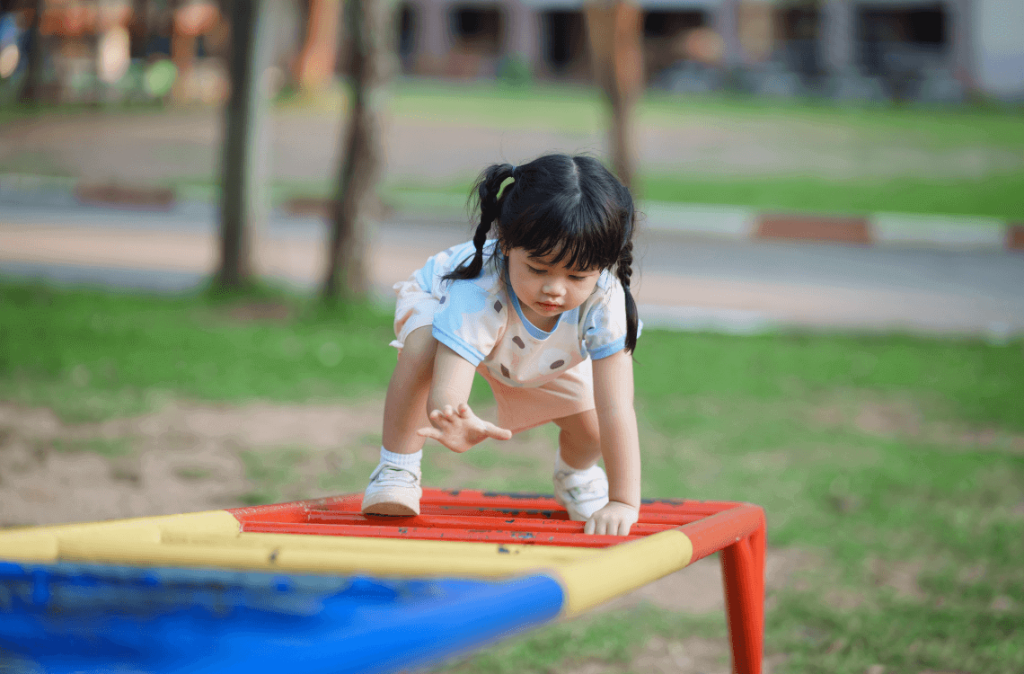As parents, keeping our children safe and healthy is always our top priority.
But it can be challenging to navigate the world of germs and infections, especially in today’s fast-paced environment.
Today, Motherhood has the privilege of chatting with an esteemed expert in children’s health, Dr JoAnn Rajah from the First Step Child Specialist Clinic.
With Dr JoAnn Rajah’s expert guidance, we’ll explore how germs affect children, the common illnesses they can cause, and practical tips to keep our little ones safe and healthy.
Without further ado, let’s dive in!
How do germs affect children’s health?
Dr JoAnn Rajah: Germs pose a significant health threat to Malaysian children, causing respiratory and gastrointestinal infections.
Due to developing immune systems, children are more susceptible, particularly when starting school.
Prolonged infections, like frequent ear infections, can impact hearing and speech development.
Sickness leads to missed school days, social isolation, and discomfort.
To safeguard children, parents should prioritise good hygiene practices, including regular handwashing, and ensure vaccinations are up-to-date.
While some germs strengthen the immune system, minimising exposure to harmful ones is essential for children to grow up healthy with fewer sick days.
What illnesses do germs commonly cause in kids?
Dr JoAnn Rajah: Germs can cause a range of childhood illnesses, each affecting specific parts of the body.
Common ailments include the common cold (rhinoviruses, adenoviruses, or coronaviruses) or influenza (high fever, muscle aches).
There’s also gastroenteritis (norovirus, rotavirus), ear infections (bacterial or viral) or strep throat (Streptococcus pyogenes).
Additionally, skin infections like impetigo (Staphylococcus or Streptococcus bacteria), conjunctivitis (pink eye) or urinary tract infections (bacterial).
Finally, kids may also contract chickenpox (varicella-zoster virus), or hand, foot, and mouth disease (Coxsackievirus).
Understanding these illnesses and their symptoms is crucial for parents to manage their children’s health effectively.
How can parents protect their children from harmful germs?
Dr JoAnn Rajah: Firstly, it is important to understand that not all germs are harmful; some are beneficial for the body’s immune system.
To safeguard children from harmful germs and reduce infection risks, parents can employ key preventive measures:
- Immunisation: Ensure your child receives recommended vaccinations to prevent various infectious diseases
- Hand Hygiene: Teach and reinforce proper handwashing habits, especially after using the restroom or before eating
- Proper Cough Hygiene: Instruct children to cover their mouth and nose when coughing or sneezing to prevent the spread of respiratory droplets
- Avoiding Touching the Face: Encourage kids to refrain from touching their eyes, nose, and mouth to prevent germ entry
- Clean and Disinfect: Regularly sanitise commonly touched surfaces like doorknobs and toys
- Healthy Habits: Promote a balanced diet, regular exercise, and sufficient sleep for a robust immune system
- Stay Home When Sick: Keep unwell children at home to prevent germ spread
- Avoiding Close Contact: Advise children to steer clear of sick individuals, particularly in communal settings like schools and daycare centres
Any tips for parents to instil healthy habits in their kids and minimise germ exposure?
Dr JoAnn Rajah: Lead by example for effective parenting—children learn from observing parents, so practice good hygiene habits.
Establish a daily routine, emphasising handwashing, meals, sleep, and exercise for consistent and predictable habits.
Lastly, explain germs to children in an age-appropriate way to motivate them toward adopting good hygiene practices.
Protect Your Kids with Multivitamin Power
Are your kids really protected from germs when they’re exposed to the outside world?
Think again.
There are many threatening germs today, but multivitamins may be the key to boosting our kids’ immunity against them.
New Lifebuoy with Multivitamins+ Antibacterial Bodywash shows superior efficacy when compared to body wash without actives.
With a Multivitamins+ antibacterial formula consisting of vitamin B3, vitamin C and vitamin E, it’s been shown to provide 10 times more germ protection for healthy skin.
Try Lifebuoy with Multivitamins Today
A mother’s work is never done, but you won’t always be there to protect your children from germs.
Hence, let Lifebuoy with Multivitamins+ Antibacterial Bodywash help you.
Lifebuoy with Multivitamins+ Antibacterial Bodywash is available at Guardian, Watson and all participating beauty and wellness stores and pharmacies.
So, mums, put on your cape, hero up, and get yourself a bottle of Lifebuoy with Multivitamins+ Antibacterial Bodywash.
Let’s protect our children against germs!
Source: Dr JoAnn Rajah from the First Step Child Specialist Clinic
Disclaimer: The information provided in this article is for informational purposes only and should not be considered as medical advice from Motherhood. For any health-related concerns, it is advisable to consult with a qualified healthcare professional or medical practitioner.
For more insightful stories and fun recipes, stay tuned to Motherhood Story!
